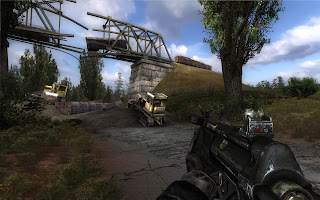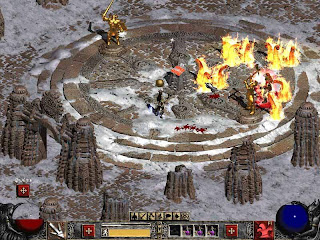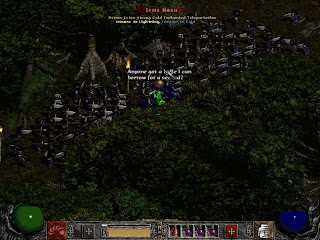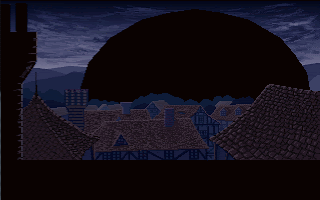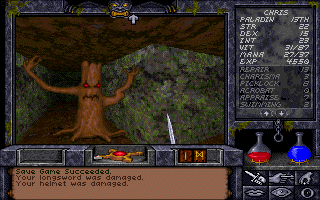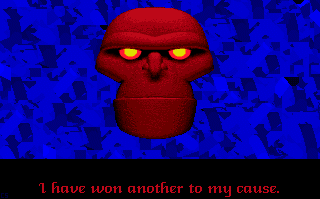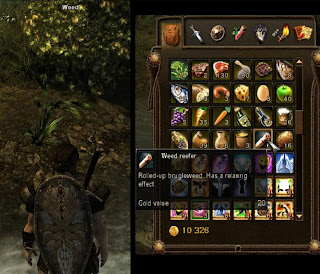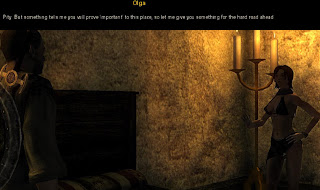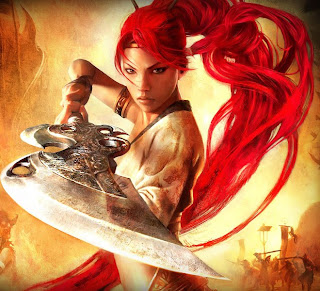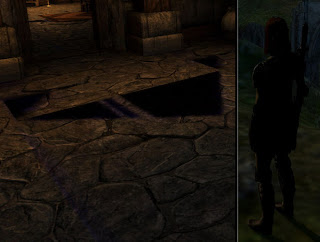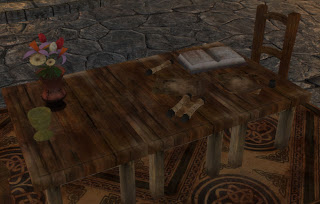The "maturity" of the game is one thing that proponents of The Witcher constantly push. This aspect is something that I really can't agree with, as The Witcher is only mature if you interpret maturity in the crudest possible sense. Having characters swear frequently using what are considered the most offensive profanities in English is not mature, it's just a cheap shot to provide a shock attraction. I think the people who declare the swearing a demonstration of the game's maturity don't understand how artificial and incongruous it is to have someone drop obscenities over trivial matters. I'm not against swearing in games, but if the emotional investment of a character doesn't match their language, I consider it nothing more than a pathetic attempt to convince people that the game is mature. It's not merely bad acting, it's bad writing, and the game seems juvenile as a result. As for the "sex cards" you get from "romancing" the various females in the game, well, the less said the better. Adding gratuituous and meaningless sex is worse than swearing. (I could continue, but I don't want the whole post to turn into a complain about this subject)
Apparently this represents maturity in gaming
There's also the issue of choice. Now, maybe this is a result of not having played enough of the game, but I haven't really felt that challenged by the choices so far, nor felt that they particularly mattered that much. Maybe as I progress further into the game, I'll see delayed effects of those decisions. I've been told that does happen in The Witcher, which might go some way towards fixing that problem. Perhaps I'm being a little harsh here, as I like the idea of being forced to pick between two choices where neither seems to be better than the other, and The Witcher does seem to do that. However, it just feels that the presentation of these decisions is lacking, as it's not like Alpha Protocol where I actually cared about the small decisions. I think the issue is that either there doesn't seem to be a whole lot at stake when it comes to making a choice, or I have no personal involvement and am not really invested in the decision as a character.
However, the point where I really have to take issue with the game is its dialogue, because it really is ordinary. Yes, I understand that the game's developers are not native English speakers, but The Witcher really struggles in this department. I'll say upfront that I don't like Geralt's personality, but the whole issue of having a pre-set character is not something that particularly bothers me in a game - I can deal with it provided that I have some control over them. However... in The Witcher, I don't. Many conversations are lengthy cutscenes, where it is Geralt and an NPC (or NPCs) talking back and forth without any interaction from me. Having a conversation of a half a dozen to a dozen lines without any input from me simply because I clicked on an NPC is not something I appreciate. Take this example of a dwarven blacksmith. Geralt and he exchange greetings, then have an extended chat about the hatred for non-humans, leaving me to watch while Geralt does the talking.
A cutscene... err, I mean conversation, from the game
When you do actually get to control the conversation, you have fairly limited conversation options at your disposal, and the characters seem to just spout exposition at you as opposed to engaging in "real" dialogue. Even worse, many conversations will also automatically continue in an exchange like the one described above without additional input beyond your first dialogue choice! This further enforces the reality that you're "watching" the game rather than "playing" it. Finally, there's the issue where I can anger an NPC to the point that they won't talk to me again simply from picking one wrong dialogue choice, and it's not even clear that I am saying something particularly offensive. Feeling I have to save before every conversation just in case I happen to say the wrong thing is a clear indication of a terrible implementation of conversation trees. Again, taking the example of the dwarf above, it's possible for me to ask him if he trades with these people he mentions. Suddenly he swears at me (there's that "maturity" again) and then refuses to talk to me at all.
*beep* Wrong answer! One permanently annoyed NPC coming up.
Regardless, I'll still attempt to persevere with The Witcher. I just can't see how it is getting so much praise for being such a great game when all I'm seeing is a mostly stale experience. A stale experience in a potentially interesting setting, mind you, it's just that the game doesn't seem to deliver anything to do justice to what appears to be a well-developed world.










